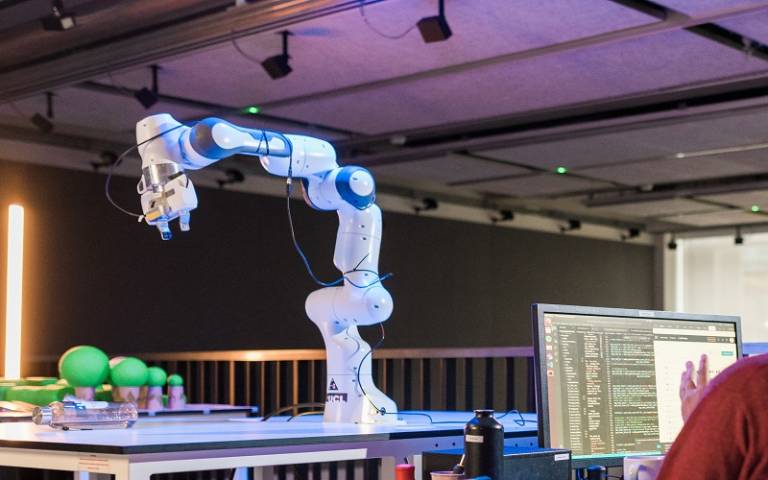New learning method 'ROMAN' improves robots’ ability to complete difficult tasks
30 October 2023
Researchers at UCL Computer Science and the University of Edinburgh have unveiled a groundbreaking approach to robots’ learning skills. The new method, ROMAN, allows robots to handle complex tasks in one go, which could make robots more useful in various industries in the future.

In an important study led by UCL Computer Science and the University of Edinburgh, researchers have introduced a groundbreaking method for teaching robots new skills, called RObot MAnipulation Network, or ROMAN. This method, published in the scientific journal Nature Machine Intelligence, is designed to help robots perform complicated tasks step by step.
The key to ROMAN's success is that it can use different robot skills smartly, like a team of specialists working together. ROMAN has the ability to learn how to use these skills in the right order to complete different tasks. What's really exciting about this research is that ROMAN can combine its skills to adapt to different situations. It can also work well even when there are a lot of distractions, or the task takes a long time.
This discovery could be a game-changer for the world of robots and artificial intelligence. ROMAN shows it's great at handling difficult tasks, which means robots could be applied to help with jobs that are unpleasant, boring, or dangerous.
This could revolutionise many industries, making them more efficient and safer. And it's not just good for businesses; it could also help the environment by making robots more affordable and eco-friendly.
“ROMAN is a big step forward in our understanding of robotic manipulation,” said Dr Alex Li, Associate Professor from UCL’s Department of Computer Science. “This research not only advances the field of embodied artificial intelligence but also has vast potential for practical applications, from advanced manufacturing to household chores. It’s an exciting time for robotics and AI.”
The combined expertise from both universities’ researchers, covering areas of robotic manipulation, hierarchical machine learning, and embodied artificial intelligence, has been instrumental in the development of ROMAN, and paves the way for more exciting advances in the AI field.
 Close
Close

